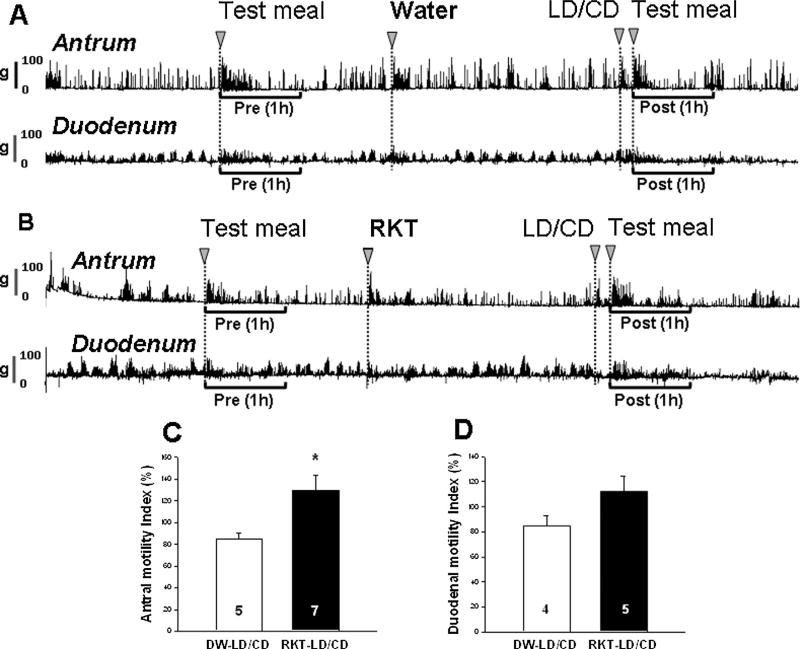Fig. 4.
Rikkunshito (RKT) prevents l-dopa/carbidopa (LD/CD)-induced reduction of postprandial antral and duodenal motility in conscious rats measured by strain gauge transducer. Single housed rats with strain gauge implanted 6 days earlier, were food restricted (~3 g/rat) overnight before the experiment. After the recording was stabilized (time 0), the 1st test meal was gavaged and 1 h pretreatment motility was recorded. Vehicle or RKT (1.0 g kg−1) was gavaged at 2 h 50 min before that of LD/CD (20/2 mg kg−1) and 10 min later the 2nd test meal was given and postprandial motility was recorded for 1 h: representative original traces in the antrum and duodenum in vehicle (A) or RKT pretreated (B), LD/CD treated rats; motility index (%MI) in the antrum (C; n = 5–7) and duodenum (D; n = 4–5) showed significant increase by RKT compared with vehicle (distilled water, DW) before LD/CD. Data are mean ± SEM. *p < 0.05 vs. each DW group.

